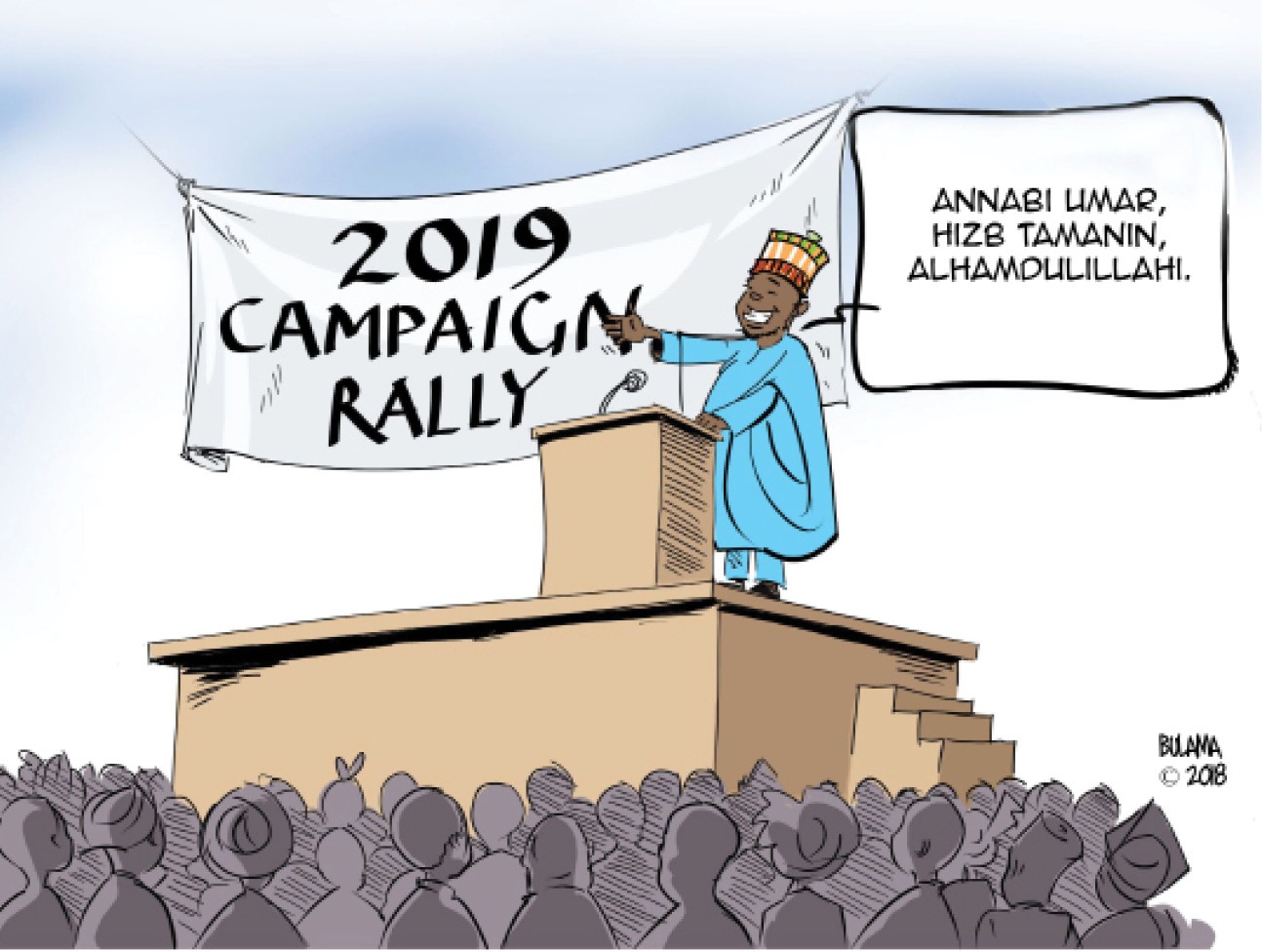Of ‘Annabi Umar’ and other adventures
‘It never ceases to amaze me, any time politicians delve into religious issues when they clearly have very little or no knowledge of them. I mean why enter unknown territory when you are likely to get lost?’ I asked, looking straight at Tahir, who was just having his breakfast after returning from an early morning […]

‘It never ceases to amaze me, any time politicians delve into religious issues when they clearly have very little or no knowledge of them. I mean why enter unknown territory when you are likely to get lost?’ I asked, looking straight at Tahir, who was just having his breakfast after returning from an early morning session of golf.
‘And what makes you think religion is an unknown territory to politicians? In a country like ours, where religion is very much a part of our everyday lives, a politician is doomed if he doesn’t identify with any. That’s why they have to delve into them, even if it’s just to survive.’ He countered.
‘Then at least let them prepare well before they confront their audience with wrong information and end up getting ridiculed unnecessarily. I mean look at what’s trending on social media, that a presidential aspirant had cited a historical incident by saying that the same thing that happened to Annabi Umar is what is happening to him now. And we all know that there was never a Prophet or messenger of God by that name. Then there was the former governor, now senator from a North-western state, who said people could memorise up to sixty or even eighty hizbs (sections) of the Qur’an, while in truth the Holy Qur’an has only sixty sections. And there was the senate president who couldn’t recite Suratul Ikhlas correctly, though it is the most important surah in the Quran because it describes the oneness of Allah and has only four verses. And you must recall the celebrated case of a vice-president who couldn’t recite Suratul fatiha with proper tajweed, at a rally, and how he was endlessly ridiculed over it. There are others as well, a collection I saw today showed no less than ten instances involving ten top politicians who all committed faux pas while trying to impress their audience with their religious knowledge. Why don’t they just prepare well, if they have to touch on religious issues?’ I queried.
‘It’s like I told you earlier, in Nigerian politics, religion, region and tribe are very important matters so a politician cannot hope to impress his audience thoroughly unless he can display his religious credentials in public.’ Tahir answered.
‘In that case I think it’s high time we begin to use those credentials well. I mean, it might not be a coincidence that in all the four cases I mentioned to you, the politicians are people bearing allegations of corruption with case files at the EFCC and some even abroad. Perhaps it’s time we start using their religious displays against them. Maybe it’s a pointer to their moral weaknesses if they can’t recite Quranic verses correctly or they mention historical figures who never existed or when they make estimates of Quranic contents with wrong figures. If we take note of any of this, maybe we are better off not voting them in and having them loot our national treasury.’ I suggested.
‘You may be right Bint. But let me tell you that even when people can do these things correctly there’s no guarantee that they are morally sound. Yes, religious knowledge and moral inclinations do not necessarily go hand in hand. Some people have a lot of book knowledge, they can tell you the correct number of chapters and verses and recite the Holy Qur’an fluently, but trust them with a public office and they put their needs and desires above everything else, because they have no spiritual knowledge. What they learnt and tried to impress others with, ends at their lips and doesn’t reach their hearts. On the other hand there are people who may not have such impressive religious credentials but they fear God deep in their hearts and know the weight of public trust, so that if they were made in charge of any public office they will never betray the trust reposed in them. So because of this, I personally don’t support your suggestion to judge people by their religious eloquence Bint.’ He concluded, rising up from the dining chair.
‘But all I’m saying is that not knowing the right religious stuff might be a pointer to one’s moral weakness, as we’ve seen in the case of the Annabi Umar episode and other campaign adventures. I mean they all seem to have allegations of corruption hanging over their heads. On the other hand I’m not saying that those who appear well-versed in religion are automatically the best leadership material. It’s like the Prophet SAW himself has said ‘The fear of God is here’ and he pointed at his heart. So, I suppose we must just pray that Almighty God gives us people who fear Him and dread the day they will be called to account for their deeds, as leaders. As for those who are quick to quote religion, whether correctly or not, if they have case files at the EFCC or abroad, then may He, in His infinite mercy, never give them the chance to loot our treasury ever again.’ I prayed.
‘Amin, amin, Wifey dear. May The Almighty answer your worthy prayer. Meanwhile, I’ll have to rush and have a shower to take off my golf sweat.’ And with that he walked out of the sitting room.
